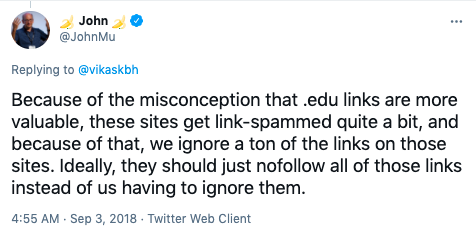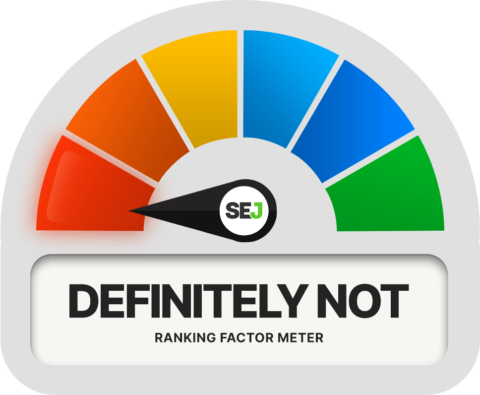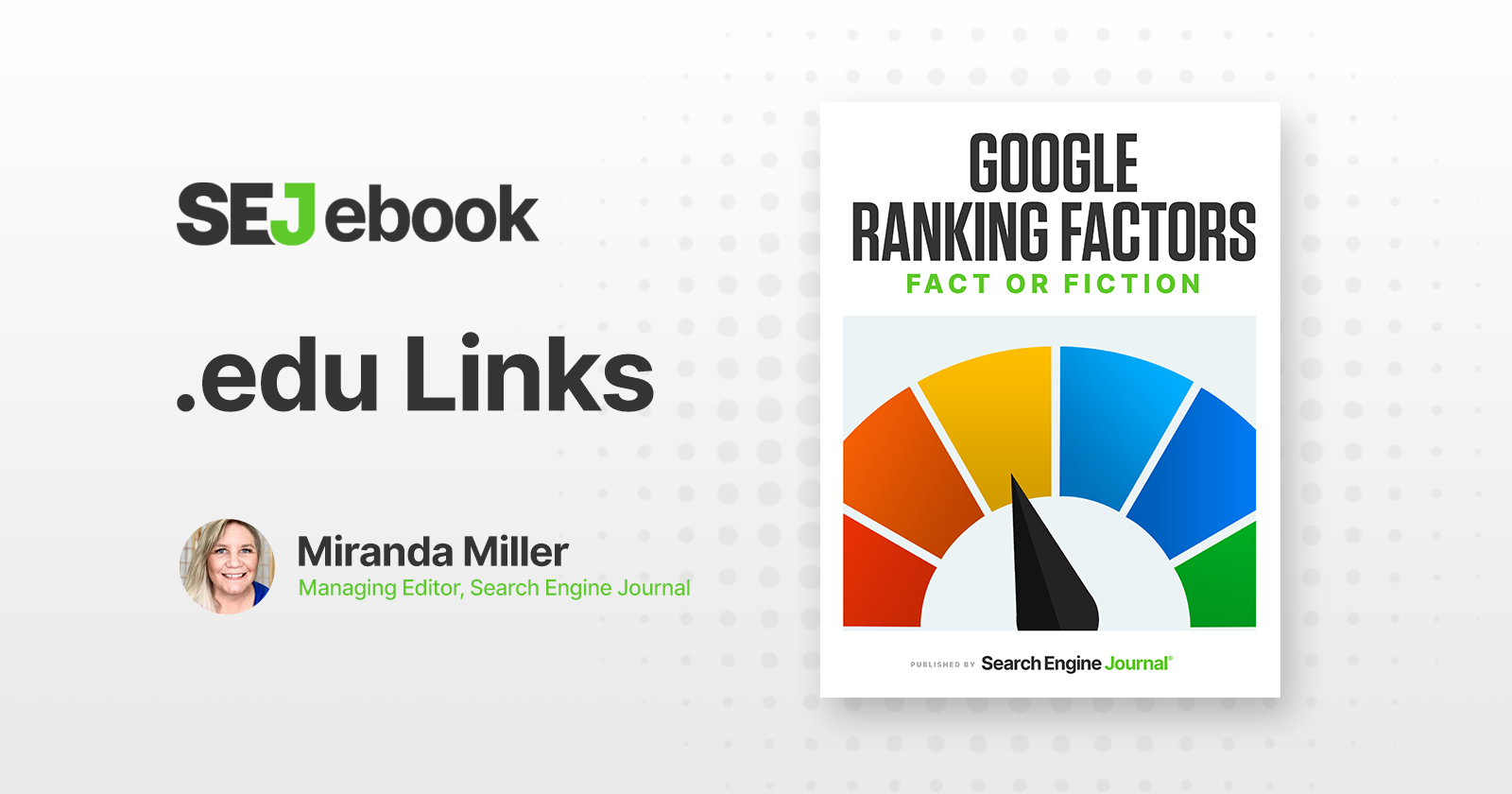If ever there was one Google ranking factor that should be easy to prove or disprove, it’s .edu links.
Right?
Well, not so much.
Misinformation and theories about what may or not be a Google search ranking factor persist far longer than perhaps they should.
Even today, there is an abundance of results for companies selling .edu links and touting their benefits.
Much Quality! Such Authority! Build “TrustRank”!
(Ahem.)
If you’re wondering whether .edu links are a ranking factor, you aren’t alone. Plenty of people want you to believe they are.
Let’s determine whether .edu links are a Google ranking factor.
The Claim: .edu Links As A Ranking Factor
Let’s be clear here before we dive specifically into .edu links: Links are a ranking factor, no doubt.
And who those links are from matters.
Links are an endorsement of your content; a signal that someone trusts you and thinks you’re pretty awesome.
Therefore, links from high authority websites with rigorous publishing controls must be super valuable. Right?
And who has more rigorous publishing practices and authority than leading educational institutions and other academia?
This is the premise of the claim – that .edu links are one of the most valuable types of links and therefore are an important ranking factor.
The Evidence For .edu Links As A Ranking Factor
You want to believe .edu links help your site rank better because it makes good sense.
Governments and educational institutions typically put out a lot of essential information and get a ton of links as a result. They tend to have high-quality content, too.
They tend to have great PageRank, and you want some. Just a little piece.
The Evidence Against .edu Links As A Ranking Factor
The thing is if you’re just catching on to this one, you’re about 15 years late to the party.
All the way back in 2010, Matt Cutts told us, “You don’t just look at the number of links to a site; you look at how reputable those links are. Links don’t really matter whether they come from a .gov or a .edu – and that applies to Twitter or Facebook, as well.”
He continued, “It’s not like a link from an .edu automatically carries more weight.”
The SEO industry had already spammed .edus to death by then.
The only way .edu links are a ranking factor today is in the sense that they’re links.
If you’re getting a link from a .edu site based on the merit of your content, the value of that link is determined by all of the same elements as if it were a link from a .com, .gov, or any other site.
And you’re going to benefit from all of the positive PR, branding, and thought leadership that excellent content entails.
For example, if you’re alumni and have an opportunity to share thought leadership on your alma mater’s site, go for it.
If you teach at a college or university, are giving a presentation at one, run a scholarship fund, or otherwise have an authentic relationship with a .edu site’s organization, you should, by all means, create relevant top-quality content that serves your audience to maximize that opportunity.
But if you aren’t earning .edu links (i.e., if you’re buying or comment spamming them instead), any potential value that link might have held for you is wasted.
As Google’s John Mueller has explained:
 Screenshot by author, July 2021.
Screenshot by author, July 2021.Considering all of the various expertise, authoritativeness, and trustworthiness signals Google has at its disposal for evaluating content quality, it’s probably pretty easy for the algorithm to sniff out poor quality content, even on an .edu site.
If you did manage to sneak it in there somehow, chances are the link will be ignored.
.edu Links As A Ranking Factor: Our Verdict

A link is a link. And links are a confirmed Google ranking factor.
However, the specific question here we are investigating is whether .edu links are more powerful, or somehow treated differently for the purposes of ranking, than other types of links.
The answer to that question: definitely not.
Sure, .edu links may be considered (or even completely ignored) for the purposes of ranking. But it’s because they’re links. It has nothing to do with the top-level domain (TLD).
In fact, the only TLD Google is going to consider any differently are those that are country-coded, and that has to do with localization.
So if you try to game this one, you’ll void any value that content may have generated for you on a site where it actually belongs, as Google will just tune you out.
Bottom line: This one is confirmed. Google does not use a link’s .edu extension as a search ranking signal.
Featured image: Paulo Bobita





